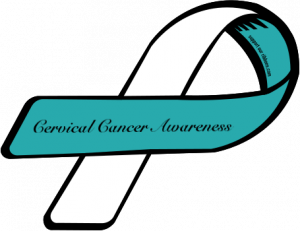
Get a pap smear to test for cervical cancer in 2015.
If your new year’s resolution is to make health a priority start this year off with Cervical Health Awareness Month. An annual event, Cervical Health Awareness Month aims to educate women and highlight issues relating to cervical cancer, preventative measures, and HPV infection.
Each year an estimated 12,000 women are diagnosed with cervical cancer in the U.S and 6,000 in the UK. However, cervical cancer is highly preventable, and treatable, if caught early. This is where screening methods, lifestyle changes, and the HPV vaccine come in.
The most common screening method is the Pap smear or pap test. Every woman should have a regular Pap examination in order to detect pre-cancerous cells in the cervix. During the smear test a sample of cells from the cervix is taken and examined for any irregularities. Follow-up treatment may be necessary depending on the results.
Cervical Cancer Awareness Month wants to raise awareness, particularly amongst women who are not vaccinated against HPV, or not screened regularly, perhaps due to a lack of understanding or inadequate health care.
Cervical cancer is caused by certain strains of human papillomavirus (HPV) which is a very common sexually-transmitted infection. Although your immune system will usually fight off the infection, some high-risk strains can lead to cervical cancer in some women. The HPV vaccine has been developed to help prevent infection. The World Health Organisation (WHO), and health authorities in Australia, Canada, the USA, and Europe recommend this vaccine for young women.
“Science has put us in a remarkable position to protect women from cervical cancer, but technology is only half the battle,” said the American Social Health Association president and CEO Lynn Barclay.
“It’s imperative we continue efforts that not only promote greater access to health care, but that we also inform women about cervical cancer and the marvelous means we now have to prevent this disease.”